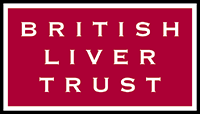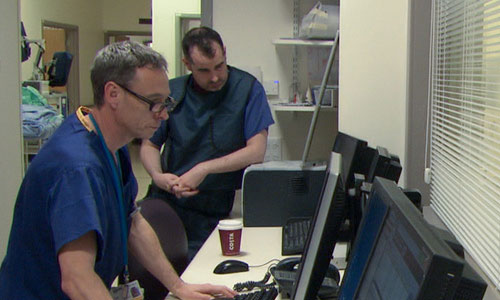
British Liver Trust welcomes NICE endorsement for Inoperable Primary Liver Cancer treatment
(7 April 2016)
New treatment option for liver cancer patients
The British Liver Trust has welcomed the advice from the National Institute for Health and Care Excellence (NICE) that doctors can consider using SIR-Spheres® Y-90 resin microspheres as a new treatment alternative to existing therapy for patients with inoperable primary liver cancer (hepatocellular carcinoma or HCC).
Despite the recent news from Cancer Research UK that Cancer death rates in the UK have fallen by nearly 10 per cent over 10 years, largely due to improvements in detection, diagnosis and treatments, for some cancers, such as liver and pancreatic, the rates of people dying from the disease have increased over the last decade.
The new NICE Medtech Innovation Briefing (MIB) published today states that patients with inoperable HCC have a poor outcome and limited effective treatment options, and that existing evidence suggests that SIR-Spheres Y-90 resin microspheres are as effective as existing therapy, (trans-arterial chemoembolization (TACE) or sorafenib).
A significant advantage of the treatment is the benefit to patients as most patients treated with SIR-Spheres Y-90 resin microspheres require only a single treatment which means reduced side-effects compared with multiple procedures or on-going drug therapy.
SIR-Spheres Y-90 resin microspheres are an innovative form of local radiotherapy typically delivering 30-40 million tiny radioactive beads directly to liver tumours via the bloodstream, which permits a uniform distribution of radioactivity around the tumour sites whilst sparing normal liver cells.
The treatment offers a further option for HCC and in a few patients with inoperable HCC, treatment with SIR-Spheres Y-90 resin microspheres has sufficiently reduced the size of liver tumours to allow potentially curative surgery with liver resection, ablation or transplantation.
The NICE advice has received widespread welcome from both the clinical and patient communities.
Professor Daniel Palmer, Chair of Medical Oncology, University of Liverpool and Clatterbridge Cancer Centre said, "This NICE MIB is welcomed, as it opens the door for UK HCC patients to have access to SIR-Spheres Y-90 resin microspheres as a well-tolerated alternative to other standard therapies. This is good news for both HCC patients and their doctors, who over the years have had limited effective treatment options available to them. Whilst exciting further research with this technology is already well along the way to completion, the new NICE MIB advice may be particularly important for those patients who can't tolerate TACE or sorafenib or are ineligible for these treatments."
Andrew Langford, Chief Executive of the British Liver Trust, stated that: "For many years, patients with inoperable HCC have had access to only two effective therapy options. Now, with the publication of the NICE MIB, NHS patients will have a further option in the form of SIR-Spheres Y-90 resin microspheres. This form of local radiotherapy is well tolerated and convenient for the patient."
About Hepatocellular Carcinoma (HCC)
Hepatocellular Carcinoma (HCC) is the most common form of primary liver cancer - cancer that starts in the liver. It is the seventh most common cancer in the world and the third most common cause of cancer-related death[i]. It affects mainly patients with cirrhosis from any cause, including viral hepatitis and alcoholism and occurs with greatest frequency in regions where hepatitis is most often diagnosed, such as in the Asia Pacific region and Southern Europe.
HCC can be treated surgically by resection or transplantation with some chance of long-term survival, but these options are available in only 30 percent of cases, at most. For the remaining 70 percent of HCC patients the prognosis is bleak, with survival ranging from a few months to about two years depending largely on the extent of their tumours and state of their liver at the time of diagnosis.
HCC is already the leading cause of death among cirrhotic patients[ii] and estimates for the coming decade suggest that the global burden of the disease is likely to increase considerably, further underscoring the need for better treatment alternatives.
The UK incidence rates of HCC for men were 3.4 per 100,000 in 2007 and 0.9 per 100,000 for women. Risk factors for HCC include cirrhosis and increasing age, with 80% of cases diagnosed in people aged 60 years or older.
During 2013, 1,648 deaths from HCC were registered in England and Wales.
Statistical modelling undertaken by the Department of Health (DoH) estimates that 10,470 individuals are currently living with Hepatitis C related cirrhosis or HCC in England and predicts that this figure will rise to 12,510 in 2025 if low coverage of current treatments is maintained.[iii]
It is further acknowledged by the DoH that both hospital episode statistics and death certification underestimate the true numbers of admissions and deaths from HCV-related end stage liver disease and hepatocellular carcinoma (HCC) in the UK[iv]
As the 2016 NICE Meditech Innovation Briefing on SIR-Spheres makes clear, there are only a few proven local and systemic treatment options available for unresectable HCC. No new option has been tested successfully for almost a decade.
About the British Liver Trust
The British Liver Trust is a registered charity with a focus on the health of the liver. The Trust has links to support groups for people affected by liver conditions, health professionals and supports research and provides publications on the wide range of different liver conditions. The work done by the British Liver Trust reaches over a million people a year.
The British Liver Trust is dedicated to assisting anyone with liver disease in the UK, this is done by providing support to patients with liver disease, improving awareness, campaigning for improved services and funding research into the causes and treatments of Liver Disease.
In addition the Trust works extensively on preventing liver disease wherever possible by raising awareness of the lifestyle choices - alcohol, obesity and viral hepatitis - that cause over 90% of all liver disease. The Trust provides an online screener that assesses the risk each person is taking and provides a comprehensive report on what they can do to improve their liver health and if need be what to discuss with their GP for tests and investigations (www.loveyourliver.org.uk).
About NICE Medtech Innovation Briefings (MIBs)
MIBs are designed to support NHS and social care commissioners and staff who are considering using new medical devices and other medical or diagnostic technologies.
The briefings are prepared centrally to help avoid the need for organisations to produce similar information locally, so saving staff time, effort and resources. The information provided includes a description of the technology, how it's used and its potential role in the treatment pathway.
A MIB also includes a review of relevant published evidence and the likely costs of using the technologies. They are designed to be fast, flexible and responsive to the need for information on innovative technologies.
MIBs are commissioned by NHS England and produced in support of the NHS 5 Year Forward View, specifically as one of a number of steps which will accelerate innovation in new treatments and diagnostics.
About SIR-Spheres Y-90 resin microspheres
SIR-Spheres Y-90 resin microspheres are a medical device used in an interventional radiology procedure known as selective internal radiation therapy (SIRT), or radioembolisation, which targets high doses of radiation directly to liver tumours. The treatment consists of tens of millions of radioactive Y-90 resin particles coated with the radionuclide ytrrium-90 (Y-90), each no bigger in diameter than a human hair. Interventional radiologists inject these resin particles, or microspheres, into the hepatic artery via a catheter inserted into the femoral artery through an incision in the groin.
SIR-Spheres Y-90 resin microspheres become lodged in the capillaries that surround liver tumours, where they deliver a high dose of short-range (mean 2.5 mm; maximum 11 mm) beta radiation to the liver tumours, while sparing healthy liver tissue. The low specific gravity of Y-90 resin microspheres allows the blood flow to evenly distribute the radioactivity within and around the liver tumours.
SIR-Spheres Y-90 resin microspheres are indicated in the United States for the treatment of non-resectable metastatic liver tumours from primary colorectal cancer in combination with intra-hepatic artery chemotherapy using floxuridine.
Sirtex Medical Limited is an Australian-based global healthcare business working to improve treatment outcomes in people with cancer. Their current lead product is a targeted radiation therapy for liver cancer called SIR-Spheres Y-90 resin microspheres. Approximately 55,000 doses have been supplied to treat patients with liver cancer at more than 900 medical centres in over 30 countries. For more information, please visit www.sirtex.com.
SIR-Spheres® is a Registered Trademark of Sirtex SIR-Spheres Pty Ltd.
References:
[i] Llovet JM, Fuster J, Bruix J. The Barcelona approach: diagnosis, staging, and treatment of hepatocellular carcinoma.
Liver Transpl. 2004 Feb. 10(2 Suppl 1):S115-20.
[ii] Fattovich G, Giustina G, Degos F, Tremolada F, Diodati G, Almasio P, et al. Morbidity and mortality in compensated cirrhosis type C:
a retrospective follow-up study of 384 patients. Gastroenterology 1997; 112: 463-472
[iii] Mann AG, Ramsay ME, Brant LJ, Balogun MA, Costella A, Harris HE. Diagnoses of, and deaths from, severe liver disease due to hepatitis C in England between 2000 and 2005 estimated using multiple data sources. Epidemiology and Infection. 2013;137(4):513-8
[iv] Hepatitis C in the UK - 2015 report - Public Health England
NHS England announces hospitals chosen to take part in new initiative aimed at increasing access to radiotherapy
(20 November 2013)
NHS England has announced the list of provider hospitals chosen to take part in a new £4.8 million initiative, aimed at increasing access to specialist radiotherapy services.
The 10 centres will provide Selective Internal Radiotherapy (SIRT) to around 220 patients a year as part of a time-limited programme called ‘Commissioning through Evaluation’.
The successful centres are:
SIRT, which is a form of radiotherapy used in the treatment of cancerous tumours in the liver, is not routinely funded by the NHS as the current evidence base does not yet demonstrate sufficient clinical and cost effectiveness for its routine use.
Commissioning through Evaluation will enable SIRT to be funded within defined parameters, in a relatively small number of centres, and within an explicit evaluation programme. It is anticipated that the programme will be funded for between 1-3 years.
This approach provides an opportunity for patients, who are deemed clinically suitable, to access SIRT – a treatment which shows significant promise in terms of improving quality of life – but is not accessible through a formal research trial.
Dr Adrian Crellin, Chair of NHS England’s SIRT Commissioning through Evaluation Steering Group, said:
“This is a very exciting development for those patients who can potentially benefit from treatment with SIRT, and for those clinicians who wish to contribute to the growing evidence base supporting this treatment.
“NHS England is committed to expanding access to all forms of specialist radiotherapy, and we await the outcome of this innovative commissioning programme with some anticipation, as is it will help us determine how best to deliver these important, and life-saving, services to patients in the future”.

Dit is een forum met beperkte toegang voor alle clinici die betrokken zijn bij de SIRT-procedure om 'best practices' en ervaringen te kunnen delen.
Klik hier om deel te nemen of aan te melden

Er is een speciale website voor SIRT-patiënten in het VK, hun families en verzorgers, genaamd My SIRT Story.
Klik hier om meer te weten te komen
